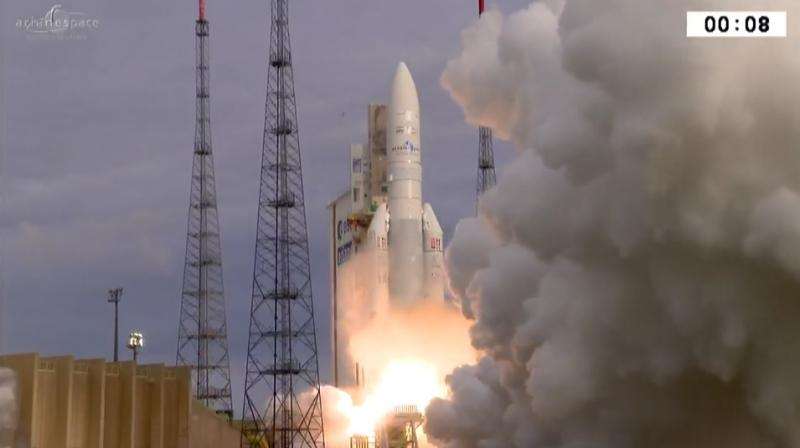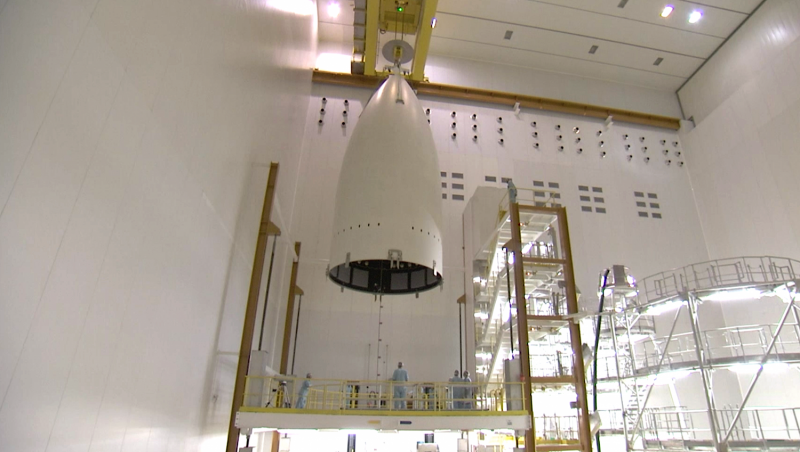Ariane 5 launch proves reliability and flies new fairing

An Ariane 5 carrying two telecom satellites inside a new lighter fairing lifted off on the fourth mission from Europe's Spaceport in two months.
Liftoff came at 21:15 GMT (18:15 local time, 23:15 CEST) last night from Kourou, French Guiana on a mission lasting about 39 minutes to deliver Hellas Sat 3–Inmarsat S EAN and GSAT-17 into their planned orbits.
Hellas Sat 3–Inmarsat S European Aviation Network, with a mass of 5792 kg, was the first to be released after about 28 minutes. The 3477 kg GSAT-17 was released 13 minutes later.
Hellas Sat 3–Inmarsat S EAN, will provide direct-to-home and telecom services to Europe, the Near East and sub-Saharan African countries, and inflight broadband within Europe. The Indian Space Research Organization's GSAT-17 will provide communications services, data relay, and search and rescue services.
Both satellites have a design life of more than 15 years.
The payload mass for this launch was 10 177 kg. The satellites totalled about 9269 kg, with payload adapters and carrying structures making up the rest.
The protective payload fairing proved by this launch was built from only four instead of the usual 14 panels. Fewer metallic junctions reduced the mass by 107 kg, giving a performance gain of about 10 kg in geostationary transfer orbit.

Different composite material and optimised manufacturing processes also lowered costs. From August, Vega will use fairings built in the same way.
"Switzerland's Ruag Space with Airbus Safran Launchers as prime contractor, developed this fairing under ESA's Launchers Exploitation Accompaniment Programme which nurtures innovation within European industry to guarantee independent access to space for Europe.
"This new fairing for Ariane 5 qualifies the manufacturing technology that will be used for Ariane 6, which will comprise only two panels," commented ESA's Daniel de Chambure, Ariane 5 Future Mission Manager.
Four launches in two months is a peak achievement. In May and June there was one Soyuz, and three Ariane 5 launches.
During this two month period, teams worked tirelessly to prepare launch vehicles and payloads for launch.
"Maintaining the launch schedule and continuing planned maintenance at this exceptional pace was possible thanks to the dedication of all stakeholders," commented Didier Faivre, Director of the Guiana Space Centre.
Flight VA238 was the 94th Ariane 5 mission.
Provided by European Space Agency





















